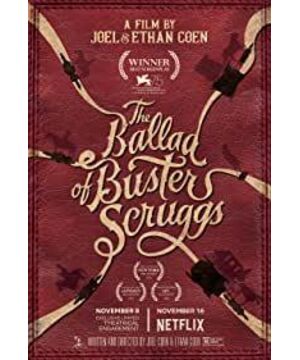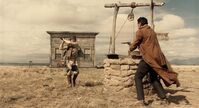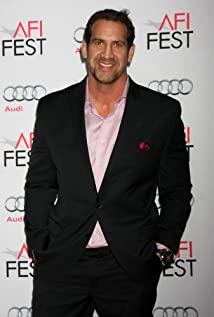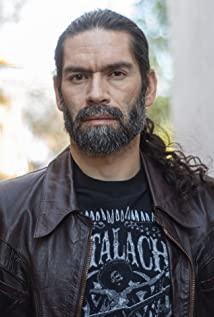Text / Mr. Tambourine's Eraser Head
The Coen Brothers' new film "The Ballad of Buster Scruggs" in 2018 was nominated for 3 nominations for the 91st Academy Awards - Best Adapted Screenplay, Best Costume Design, Best Original Song. Although the number of nominations is not as good as some "explosive films", such as "Roma", the Coen brothers have always been a guarantee of quality, and "The Ballad of Buster Scruggs" is no exception.
The film consists of 6 short stories, both independent and connected, included in a book called "The Ballad of Buster Scruggs", which tells the story of the old West and the anecdote of the American frontier. This article will not describe each story separately. Such an article analyzes everything on the Internet, but considers the six stories as a whole, a big adventure in the American western frontier, and extracts several cores about the west.
A large part of the reason for people to open up the west is the pursuit of interests and the desire for wealth, which is a major driving force for people to develop the western frontier. The characters in the film are divided into two parts - some people take risks for wealth and engage in robbery; the other part is diligent and diligent for wealth, making a fortune with their own hands and blood and tears.
The third story is about a young disabled actor who is abandoned by someone who has been taking care of him because of a drop in income. Strictly speaking, both are unfortunate people, both torn between fullness and hunger. The alliance between the two of them for making money will obviously break down if they can't make money. A rooster has replaced the disabled actor. In a state where wealth cannot meet the basic needs of life, the so-called morality and ethics are chaotic.
The fourth story directly tells the story of an old man digging for gold in the canyon. The old man was obsessed with wealth, talking to himself about the underground gold mine, obviously the desire for gold has reached the level of greed. But on the other hand, he relies on his own labor and hard work to exchange for wealth, which is in sharp contrast with the despicable villains who try to get something for nothing. The greedy pursuit of wealth is nothing compared to other moral corruptions. Conversely, working hard to get rich is a virtue.
The fourth story seems to have a conclusive meaning, a summary of the pursuit of wealth-wealth is a gift of nature, and I should take it; take one of the four eggs, and seek it in moderation from the earth; private Wealth is sacred and should be defended to the death; wealth is never a sin, but a series of problems derived from the pursuit of wealth.
Violence is rife throughout the film, and the Coen brothers deliberately present the pain of violence. In this way, human life appears extremely fragile, and what people have during their lifetime appears extremely precious.
The first story portrays a sharpshooter with a lot of harsh words, and he has a good voice to sing. A sharpshooter is naturally able to control any situation, but at the same time, this is a high-risk occupation, and life and death are a matter of moments. The gun is a tool in this story, not a symbol of good or evil, but a way of life in the Wild West. The stories of so-called sharpshooters are similar, because life is fleeting and violence always ends in death.
The popularity of guns is based on the fact that there are huge gaps where government jurisdiction cannot reach, and it is especially important to defend one's property and interests in a timely and proactive manner. This could be bank clerks stepping up to fight off robbers, pioneers swearing to defend their gold mines, or migrants fighting Indians for survival.
Such "wu virtue" is unimaginable for a "peace-loving" nation, and it is extremely unreliable to count on this other person to protect their own interests, whether this person is concrete or abstract. In a specific situation in reality, only oneself can ensure that one's own interests are not violated in the most timely manner, and the right to own a gun is related to personal freedom.
All six stories have deaths of all kinds, told in a playful tone that makes death "casual" -- for a thousand and one reasons. At the same time, with so many characters dying, death has become a norm and can easily be said like a joke. After all, all the stories in the books have one thing in common, and that is that the people in the stories are dead.
The so-called destiny can be that the secret cannot be leaked, or it can be in their own hands, but the ending must be the same. It is inevitable that people will die. This is probably destiny, regardless of whether they are rich or poor. All sharpshooters are replaced by younger sharpshooters, the wicked seem to escape judgment, the weak seem destined to be abandoned, and so on.
The sixth story is a good counterpart to the "ascension of the soul" in the first story, which tells the story of a pair of "death gods" extraditing three people. Whether it is a vulgar person, a pious person or a rational person, all will usher in death. Facing the palace of the god of death, the first two stepped into it tremblingly, and the rational person thought about it at the door and gladly accepted the final outcome. .
Interestingly, this pair of Reaper seems to be the embodiment of the Coen brothers - one attracts the audience with stories, chats and singing, and the other breaks the expectations of the audience. The two directors have been in the industry for so many years, and they have already figured out the "details" of the audience, and said it through the mouth of "Death": the audience clearly knows this story, but they still listen to it all the time. The reason is that they always think of the story to themselves, the audience I like listening to my own stories, where the characters are the audience but not really the audience.
In other words, the characters in the film undertake the task of experiencing and taking risks on behalf of the audience, fictitious experiences in the film that the audience may never really have. Everything in the movie is not necessarily true, but it must be believable. So it makes sense that some people say that the essence of art is illusion. The work needs to establish a sacred and private connection with the audience.
Six small western stories, each of which is permeated with a strong sense of fate and the fragility of life, which together constitute a yellowed epic sense. At the same time, Western stories can only be American stories, during which you can glimpse the characteristics of the American nation, such as private relief, private property, and the enterprising spirit of pioneering the wild west. In 2018, there was such a film, which intentionally or unintentionally aroused the public's identification with the country, and tried to reiterate that the history of the United States is a glorious history.
View more about The Ballad of Buster Scruggs reviews











